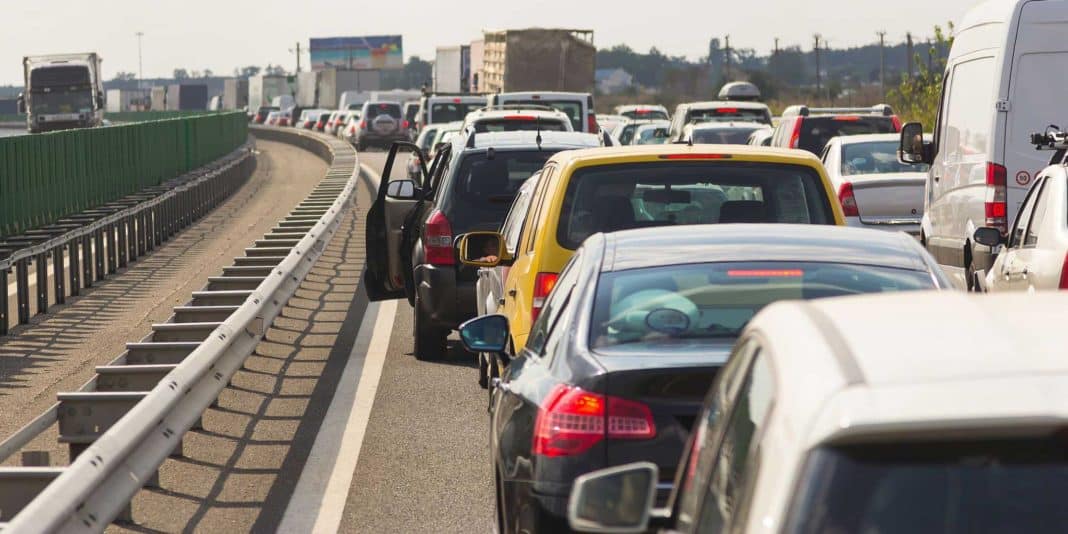The first special operation for summer 2023 began on Friday at 3:00 p.m. and ends at midnight on Sunday, July 2, with a forecast of 4,500,000 trips on the roads of Spain.
From July 1, the use of warning triangles on motorways has been exempted. On conventional roads, its use is still mandatory.
“When you kill someone, you kill them every day of your life ” is the slogan of the DGT’s awareness campaign this summer to prevent improper behaviour at the wheel.
On the occasion of the beginning of the summer season and the increase in road travel during the months of July and August, the General Directorate of Traffic has prepared a special device to ensure the safety of users traveling on the road network.
It has been predicted that during the two summer months there will be 95 million long-distance journeys, 1.75% more than the real movements that were registered last summer and that even then, exceeded those recorded in the summer of 2019. The expected distribution by month is 45.6 million trips during the month of July and 49.3 million in August.
As has been customary in recent years, the departure and return of the holidays is carried out in stages and in shorter periods, making them coincide on numerous occasions with a weekend.
For this reason and to attend to the greater number of people who start their holidays on the weekend, and who opt for the vehicle as a means of transport, the DGT has established special traffic regulation and control devices during all weekends of the summer period, intensifying them during the first weekends of each month and giving rise to the so-called departure or return operations.
Special operations
1st summer operation – From June 30 to July 2
Operation August 1 – From July 28 to August 1
Operation August 15 – From August 11 to 15
Operation Summer Return – From August 31 to September 3
Special devices – Every weekend
END TO THE USE OF TRIANGLES ON MOTORWAYS
One of the novelties of this summer is that as of July 1, the use of warning triangles on motorways is exempted in the event of immobilisation of the vehicle due to an incident or breakdown. Its use is still mandatory when these circumstances occur on conventional roads.
TRAFFIC IN SUMMER
Traffic in summer presents different characteristics to those that occur at other times of the year and that must be taken into account:
Increase in long-distance journeys on weekdays and especially on weekends. On the other hand, less conflict in the accesses to the big cities at the rush hour of entering and leaving the workplace.
Increased vehicle traffic on secondary roads.
Increase in night movements.
Conflicting circulation on roads that connect coastal towns and coastal tourist areas with the beaches.
Greater presence of cyclists and pedestrians on the road.
Greater circulation of foreign-registered vehicles on the road whose drivers are not used to the itineraries on which they circulate. Of this circulation of foreign-registered vehicles, it is worth highlighting those that travel to third countries, such as citizens from other European countries, who stay in their countries of origin in Africa, during the so-called Operation Passage of the Strait, in which More than 700,000 vehicles are expected to pass through our roads.
In addition, there is the Passage to Portugal, for which the DGT, in coordination with the Portuguese authorities, will serve another 250,000 more vehicles that will circulate through our territory, from France to Portugal on vacation.
SAFEGUARDING ROAD SAFETY
To safeguard the safety of road users, the operation has the full availability of the means, both human (agents from the Traffic Group of the Guardia Civil, civil servants from the Traffic Management Centres, helicopter patrols and personnel in charge of maintaining equipment and installing measures on the road), as well as technicians (fixed and mobile speed control cameras, as well as helicopters, drones, cameras and camouflaged vans to control the use of mobile phones and seat belts) of those available to the DGT.
In order to favour circulation in the most conflictive areas during special operations and on weekends, measures will be adopted such as the installation of reversible and additional lanes with cones and beaconing during the hours of greatest traffic flow and the establishment of alternative itineraries. Likewise, works on the roads will be stopped, the holding of sports events and other events that involve the occupation of the road will be limited and the movement of trucks in general and those that transport dangerous goods will be restricted, as well as special transport in certain sections, dates and times.
The DGT always recommends, before starting the trip, to plan it along the safest route to avoid unforeseen events and find out about the state of the roads.
From the Twitter accounts @informacionDGT and @DGTes or the news bulletins on radio and television, as well as on the 011 telephone, the traffic situation is reported in real time and any incidents that may exist.
All the established device, as well as advice, can be consulted at dgt.es
The post The DGT forecasts 95 million long-distance journeys by road this summer first appeared on N332.es – Driving In Spain.





